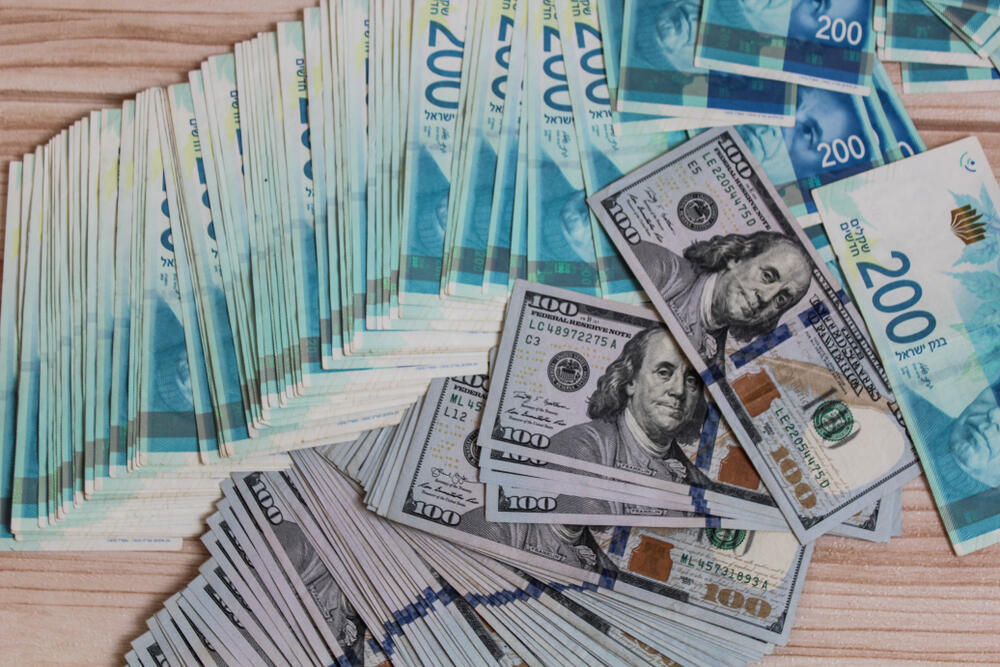The term "Start-Up Nation" is well-known not only in Israel but also around the world. It highlights the remarkable success of Israel’s high-tech industry. Countless innovations have emerged from this small country, establishing Israel as a leading global tech hub. From groundbreaking cybersecurity technologies to cutting-edge software solutions, Israeli advancements have significantly impacted both developed and developing nations, solidifying its reputation on the global stage.
Israel’s tech industry is the fastest-growing sector of the local economy. It boasts the highest R&D expenditure per capita in the world. Salaries in this sector are, on average, three times the national average, and employee satisfaction is among the highest across all industries. Employing around 14% of the population in both tech and non-tech roles, the industry significantly contributes to the national economy, accounting for approximately 40% of annual tax revenues for the Israeli government.
Therefore, it should come as no surprise that the State of Israel relies heavily on this industry for its economic growth and survival, especially during economic downturns.
On October 7, Hamas launched one of the most horrific terrorist attacks in modern history. The attack killed over 1,200 citizens and took more than 240 hostages, leading to a full-blown war in Gaza that has severely disrupted the local economy. Hundreds of thousands of IDF reservists have been called up and deployed to Gaza and other fronts. The government has significantly increased its military spending to fund the war, and social welfare compensations for those affected by the conflict are also straining government resources.
Funding the war is leading to an expanding budget deficit, which worsens as the war persists. Should the deficit grow further, government ministries will be compelled to reduce their budgets. This will gravely affect public services, including healthcare, education, transportation and public safety, to keep financing the war.
Hopefully, we can avoid this situation and find a solution to the growing economic complexity. Given that the high-tech industry is the true economic engine of Israel, it may once again be this sector that saves Israel, as it has during previous economic downturns.
The foundation of the Israeli economy relies on high-tech products, their exports and the taxes generated by this sector. Notably, nearly 80% of high-tech products are exported, contrasting starkly with the approximately 40% exported by more conventional, low-tech firms.
In basic economics, shifts in supply and demand for products and services can be influenced by factors such as interest rates, currency exchange rates and inflation rates. Given that a significant portion of Israel's high-tech products are exported, this underscores the sensitivity of the local high-tech industry to fluctuations in currency exchange rates.
The strength of the U.S. dollar significantly impacts Israeli tech exports, comprising 80% of the sector's revenue. A stronger dollar raises prices for foreign buyers, potentially reducing demand, yet benefits companies with costs in shekels and revenue in dollars. Conversely, a weaker dollar boosts competitiveness, increasing demand. Effective management of exchange rate fluctuations is crucial to balance export competitiveness and maximize tax revenue for Israel, directly impacting the government's fiscal stability and economic growth.
To boost demand for Israeli tech exports, especially considering the strength of the U.S. dollar, a weaker dollar would be preferable. This makes Israeli tech products more affordable for foreign buyers in their local currencies, stimulating demand and increasing export volumes. Ultimately, this leads to higher revenues and tax contributions for the Israeli government, potentially catalyzing Israel's economic recovery in the wake of this war and preventing government budget cuts that could adversely affect our quality of life in this country.
In the midst of the conflict, the Bank of Israel Research Department expects the economy to grow by 2% in 2024, down from an average annual GDP growth rate of 3.91% from 1996 until 2023. Despite efforts by the central bank to address the situation, we're still unsure how deeply and for how long the economy will be affected. The ongoing conflict will seriously test Israel's strength and its economy, bringing significant challenges once more.
Since October 7, the U.S. dollar has weakened by only -4%, but it strengthened considerably in the following days and weeks after the terrorist attack. Could a weak U.S. dollar be the key to unlocking Israel's economic resilience amid ongoing challenges? By enhancing the competitiveness of Israeli exports in global markets, such a scenario could potentially drive up tax revenues and fuel GDP growth, positioning Israel for a more robust recovery.
As we navigate uncertain times, perhaps it's time to consider the potential benefits of a weaker dollar for Israel's economic future. However, for this to materialize, the Bank of Israel must prioritize exchange rate management strategies that support the competitiveness of Israeli exports and foster economic growth.
- Ariel Abraham is a financial analyst





